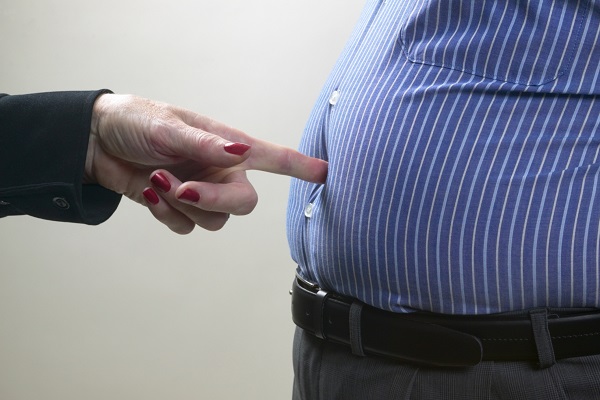How To Lose Fat
The first is setting a caloric deficit. Your body needs to burn more calories than are going in. It's that simple. First you figure out what your body needs to maintain its weight given your lifestyle, and then you set the deficit to around 80% of that. Whether you do this by simply eating less food, or eating less calorie-rich food, or combining your new diet with exercise doesn't matter. All that you need to do is ensure that less calories are coming in than are needed.
Second, you need to set your protein intake. There are many reasons that this is the second most important facet of fat loss dieting, one of which is the concern over losing lean body mass instead of fat when you lose weight. When you literally starve, your body scavenges key amino acids from the protein in your muscles, breaking them down so you can survive. Dieting is a form of starving your body in which you deprive it of nutrition. To prevent your body from turning on your lean body mass, you need to ensure you're getting enough protein to keep it happy. Also, protein is the most filling of the three macronutrients (fat, carbs, protein). By eating more, you'll feel more filled, less hungry, eat less.
Next, we set your total fat intake. First, forget all that drivel that all fat is bad for you. Yes, trans-fatty acids are evil, and yes, saturated fat can raise your cholesterol if you are already overweight and inactive, but can still be eaten in moderation. Few things in nutrition are as simple as good/bad, and that includes fat. Think about it--omega-3's and omega-6's, crucial parts of any diet, are forms of polyunsaturated fat. But the reason you need fat in your diet is simple: you need to stick to it, and fat makes food yummy. Any diet based on tasteless, awful food with no flavor will be impossible to stick to. Be realistic. If you like what you're eating, you'll continue to eat it. Finally, moderate amounts of fat tend to blunt hunger between meals. It keeps glucose levels stable, and this prevents you from breaking your pattern. So a moderate amount of fat is crucial for a number of good reasons.
From there, you need to figure out your own particulars. The amount of activity you get will in term determine how many calories you should be ingesting, as well as how many carbs you should be eating. Your insulin sensitivity will also determine how well you react to higher levels of carbs and fat, and must be accounted for. There is no one single perfect diet for everybody, which is why beyond those first three requirements you have to calculate your own particulars. How active are you? How much exercise? Do you walk around all day or sit at a computer? Are you obese, overweight, or lean and just looking to cut down further? The ratio of carbs to fat to protein are naturally thus affected.
In summary. Any successful diet will work along these lines: first you set a caloric deficit. Then you set your protein intake, and probably set it high. Third you set your fat intake to moderate, and from there, you figure out the rest depending on your own unique case. Any diet that deviates from these basic rules will not work, and it is by these criteria that you should judge them.
Related Articles
-
Simple Diet Tips to Lose Weight Easily
Choices are abundant when you are lookin
-
Does The Size Of Your Stomach Shrink When You Eat Less?
Most of us know that the
-
Why Is Hoodia Such A Sought After Weight Loss Supplement
Hoodia Gordonii is an unambitious little South African desert cactus t
-
Reach Your Bikini Goal With The South Beach Diet
Everyone wants to look great for the sum
-
The Seven Sins of Obesity: The Final Conclusion
This article is the final conclusion to the article series about th
-
Maximize Your Workout
You’ve taken the first step to a healthier lifestyle….you’ve st
- DON'T MISS
- You Can Keep The Weight Off By Using These Tips
- What is The Dukan Diet?
- Meal Replacement Shakes for Weight Loss - Important Things You Have to Know
- Do It Right The First Time….. Choosing The Best Weight Loss Program For You.
- Acai Fresh fruit Effects You’ll Want To Understand
- How does apple help in weight loss?
- The Benefits Of Bariatric Lap-Band Surgery
- Phentermine is Incredibly Successful
- 4 Diet and Exercise Tips for the Holidays
- How Lifting Weights Helps You Burn Fat




